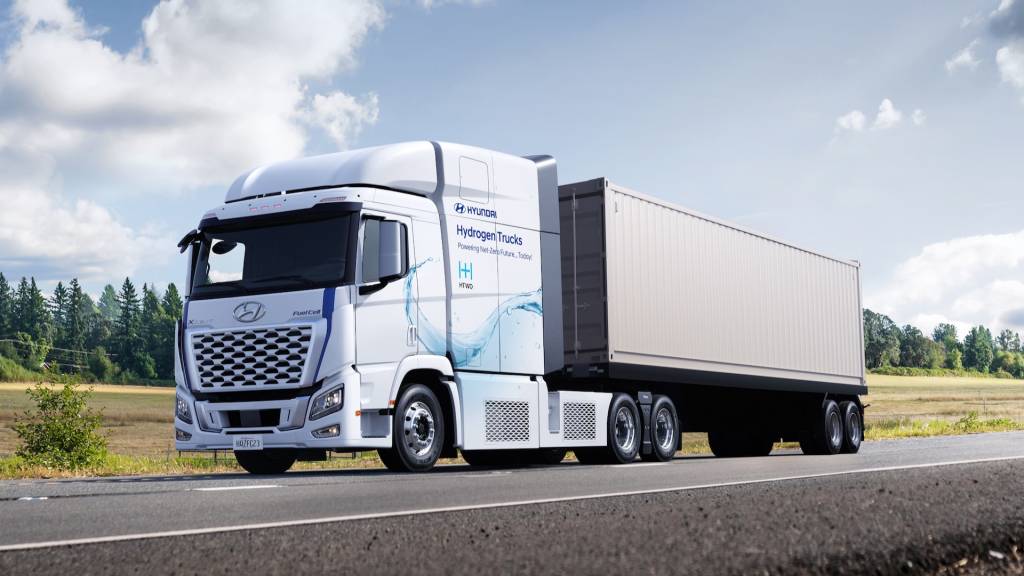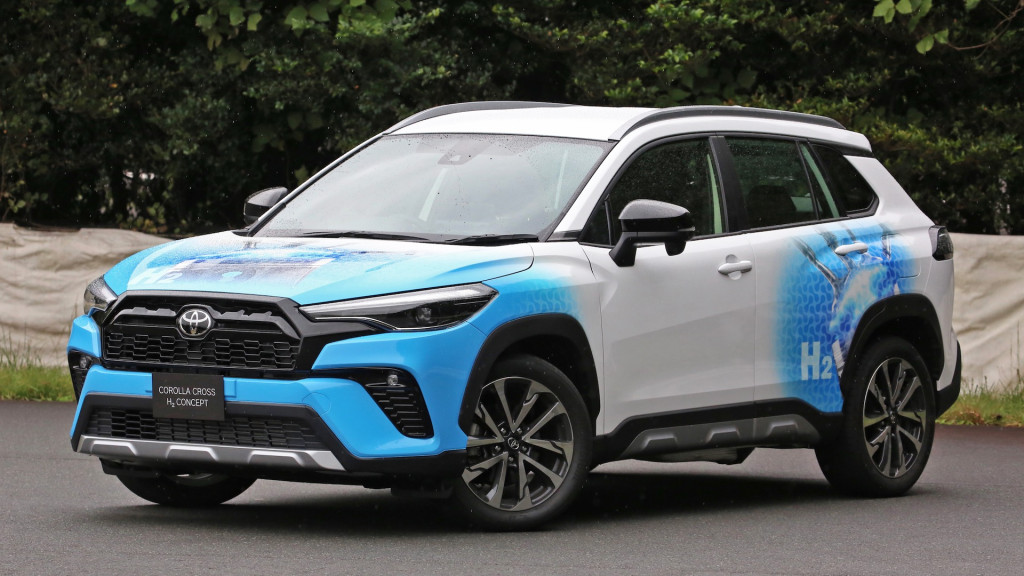Honda not too long ago introduced two new hydrogen initiatives spanning each gas cells and hydrogen-combustion engines.
The automaker on Monday confirmed plans for a fuel-cell heavy-truck co-developed with Isuzu, which as soon as offered passenger automobiles within the U.S. however has now largely retreated into the commercial-vehicle sector. The 2 firms plan to display a prototype by subsequent yr, with a market launch following in 2027.
Whereas not confirmed for the U.S., this undertaking brings Honda into the ranks of automakers which have shifted to creating fuel-cell semis. Toyota and Hyundai each not too long ago introduced plans to broaden fuel-cell semi plans for the U.S., and Common Motors in 2021 introduced plans to construct and assist 2,000 fuel-cell semis in live performance with truck maker Navistar.

Hyundai Xcient Gas Cell
Two days after the fuel-cell semi announcement, Honda additionally introduced a joint effort with different Japanese firms to analysis hydrogen combustion engines. Whereas gas cells use gaseous hydrogen to generate electrical energy to energy motors, these engines merely burn it rather than liquid gasoline or diesel.
Honda is engaged on hydrogen combustion with Suzuki, Kawasaki, and Yamaha for merchandise within the “small mobility” sector. The identical 4 firms have additionally gone in collectively on battery swapping for bikes, and symbolize half of the worldwide motorbike market.
Honda did not say whether or not the brand new partnership, dubbed HySE, would focus particularly on bikes, however an organization press launch mentioned one space of analysis would contain safeguarding gas tanks in smaller autos. Engine efficiency and fueling infrastructure will likely be checked out as effectively, based on Honda.

Toyota Corolla Cross H2 Idea
As with fuel-cell semi vans, Honda is following within the tire tracks of rival Toyota. The bigger automaker has been utilizing and creating an internal-combustion hydrogen engine for motorsports, and has gone as far as to say that it sees a hydrogen-combustion Corolla Cross as an EV different.
Hydrogen combustion has some potential pluses, together with the power to protect current internal-combustion automotive designs, whereas avoiding the necessity for the costly supplies of present fuel-cell stacks. However hydrogen combustion nonetheless produces tailpipe emissions—together with nitrogen oxides (NOx)—so it isn’t an enormous achieve from an emissions standpoint.
Gas cells, in distinction, haven’t any “tailpipe” emissions, and evaluation signifies their carbon footprint will be made suitably low if hydrogen is produced from inexperienced sources. Sourcing of hydrogen may even be a consider calculating general emissions from hydrogen combustion engines—with tailpipes then factored in on high of that.
